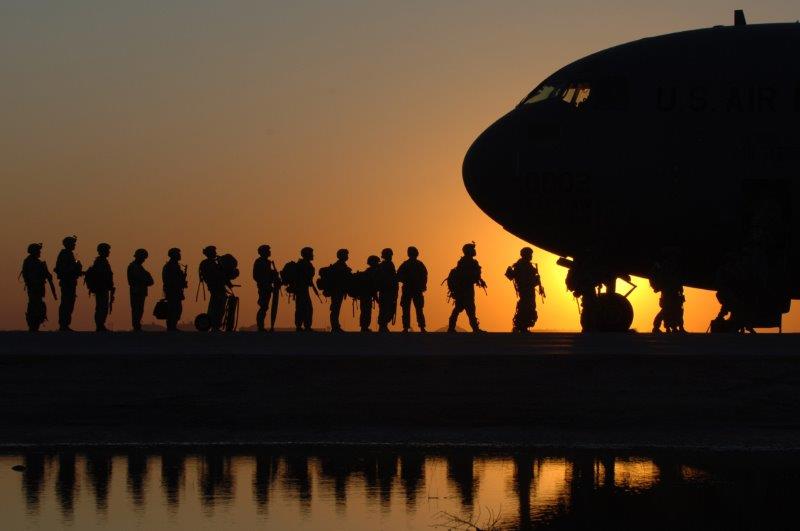When it comes to criminal offenses committed by military personnel off base, many people wonder whether military police have jurisdiction. Questions like "can military police arrest off base" or "can military police pull you over" tend to come up. These are complicated questions, and the answers aren't always straightforward. In this section, we'll explore the intricacies of military law and examine the authority and limitations of military police outside of military installations.
First, it's important to understand that military law applies not only on military installations but also off base. However, jurisdiction can be limited outside of military installations due to the principle of federalism, which reserves certain powers to state and local governments.
That said, do military police have jurisdiction off base? The answer is yes, military police do have authority off base in certain circumstances. Exactly how and when military police can exercise that authority is determined by several factors, including the nature of the offense, the location of the offense, and whether civilian authorities are also involved.
Key Takeaways:
- Military law applies not only on military installations but also off base.
- Jurisdiction of military police off base can be limited due to the principle of federalism.
- Military police can exercise their authority off base in certain circumstances, depending on several factors.
Understanding Military Jurisdiction and Authority
Military law and civilian law enforcement have distinct differences in their jurisdictions and authority. While civilian law enforcement agencies have the responsibility to maintain law and order in their respective jurisdictions, the military police are tasked with enforcing military law and maintaining discipline within the military.
Under military law, military police have jurisdiction on all military installations, including a military base and surrounding areas. This means that military police have the authority to investigate and apprehend military personnel who are suspected of committing offenses on or off base that are related to military law. However, their authority off base is limited.
Outside of military installations or a military property, military police have jurisdiction over military personnel who are off duty and off base, but only when the offense is related to military law. For example, if a military service member commits an offense that violates both civilian and military law, the civilian authorities will take initial jurisdiction.
The military police work in conjunction with civilian law enforcement agencies in cases where their jurisdictions overlap. For instance, in cases where civilian law enforcement agencies or local police are investigating an offense that involves a military service member, the military police may assist them in their investigation. The military police also share information with civilian law enforcement agencies to help them solve crimes. This cooperation helps to build trust and understanding between the military and civilian communities.

The military police are committed to working with civilian law enforcement agencies in order to make communities safer. By sharing information and working together, they can more effectively investigate and solve crimes, regardless of where they occur.
Did You Know: Historically congress has been reluctant to pass a law giving military police the right to arrest civilians because the fear of military authority which has engendered during colonial times is still strong. As a result, existing manuals urge military law enforcement officers to seek guidance from a judge advocate anytime a situation involving a civilian arises.
It is essential to note that military law enforcement agencies are not intended to replace civilian law enforcement agencies. Instead, they work as complementary agencies, with each one having its own distinct role. While the military police have jurisdiction within their areas of responsibility, they are not above the law, and they must obey civilian law enforcement when they are outside their jurisdiction.
Military Police Officer Off Base: Concurrent Jurisdiction

When it comes to the question of whether military police have jurisdiction off base, the concept of concurrent jurisdiction plays a significant role. Concurrent jurisdiction refers to the shared authority between military and local civilian law enforcement agencies. This means that, in some cases, both military and civilian authorities may have the power to enforce state or federal law, depending on the circumstances.
For example, if a military member commits a crime off base that violates both state and federal law, then both military and civilian authorities may have jurisdiction to investigate and prosecute the offender. This can lead to complex jurisdictional disputes and coordination efforts between military and civilian law enforcement agencies.
When it comes to concurrent jurisdiction, military police have the authority to enforce both state and federal law, in addition to military law. However, this authority is not absolute. The military must still work with civilian authorities and follow state and federal law to ensure that their actions are legal and effective.
| Military Police Authority | Civilian Law Enforcement Authority |
|---|---|
| Enforce military law on military installations and overseas | Enforce state and federal law off base |
| May assist civilian authorities with their investigations | May assist military police with their investigations |
| May have concurrent jurisdiction in some cases | May have concurrent jurisdiction in some cases |
It is important to note that civilian authorities may take over jurisdiction in some instances, particularly if the offense is serious or if there is a conflict between state and federal law. In these cases, military personnel may be subject to civilian court and prosecution instead of facing a military court martial.
Overall, concurrent jurisdiction highlights the importance of communication and cooperation between military and civilian law enforcement agencies. While military police do have the authority to enforce state and federal law off base, their jurisdiction is not absolute. Rather, it is defined by a complex network of legal frameworks and agreements between military and civilian authorities.
Limits of Military Police Authority Off Base

While military police have certain authority off base, it is not absolute. In many cases, civilian law enforcement agencies may take over jurisdiction. For example, if a military member commits a crime off base that is also a violation of state law, civilian authorities may take over the case. Military police must cooperate with civilian authorities and cannot interfere with their investigations.
In some cases, military courts may handle offenses committed by military personnel off base. However, there are limits to this authority. Military courts generally only have jurisdiction over offenses that are also violations of military law and that are committed by military personnel. Additionally, civilian authorities may choose to prosecute the case instead of the military court.
Did You Know: Military police cannot arrest civilians, even if they have committed a crime on a military installation. This is because of the Posse Comitatus Act, which prohibits the use of federal military personnel to enforce civilian law. The Posse Comitatus Act was passed in 1878 to prevent the military from being used to suppress civilian dissent.
It is important to note that military police cannot exercise authority over civilians off base, unless the civilian is accompanying a military person or is on a military installation. In such cases, military police may exercise limited authority over the civilian, but they must still cooperate with civilian law enforcement agencies if they become involved.
Overall, the limits of military police authority off base are determined by a complex system of laws and regulations, including military law and state and federal law. It is important for military personnel to understand these limitations and to cooperate with civilian authorities when necessary.
Wrapping Up Military Police Jurisdiction Over a Civilian
While military police have the authority to enforce military law off base, that authority is not absolute. The concept of concurrent jurisdiction means that they share authority with civilian law enforcement agencies, and there are limits to the reach of military law enforcement.
When it comes to off-base incidents, military police must work closely with civilian authorities to ensure that justice is served. In some cases, civilian authorities may take over jurisdiction, and military personnel may be subject to civilian courts.
Overall, understanding the complexities of military jurisdiction and authority is crucial for both military and civilian communities. By working together, military and civilian law enforcement agencies can maintain law and order both on and off base, ensuring the safety and security of all.
FAQ
Q: Do military police have jurisdiction off base?
A: Yes, military police do have jurisdiction off base, but it is not absolute. There are limitations and complexities that come into play when it comes to military law enforcement outside of military installations.
Q: What is military jurisdiction and authority?
A: Military jurisdiction refers to the legal authority that military police have to enforce military law. It differs from civilian law enforcement and is specific to the military justice system.
Q: How does military police jurisdiction interact with civilian law enforcement?
A: Military police and civil law enforcement agencies often have concurrent jurisdiction, meaning they share authority. They work together to enforce the law and maintain order both on and off military installations.
Q: What are the limits of military police authority off base?
A: Military police authority off base is limited by various factors. Civilian authorities may take over jurisdiction in certain circumstances, and military courts handle offenses committed by military personnel off base.
Q: What is the conclusion regarding military police jurisdiction off base?
A: While military police do have authority off base, their jurisdiction is subject to limitations. Concurrent jurisdiction, cooperation with civilian authorities, and the boundaries of military law enforcement all shape their authority in off-base incidents.
Q: Does the Uniform Code of Military Justice (UCMJ) apply to service members who commit crimes off base?
A: Yes, the UCMJ applies to service members who commit crimes off base, regardless of where they are located.











